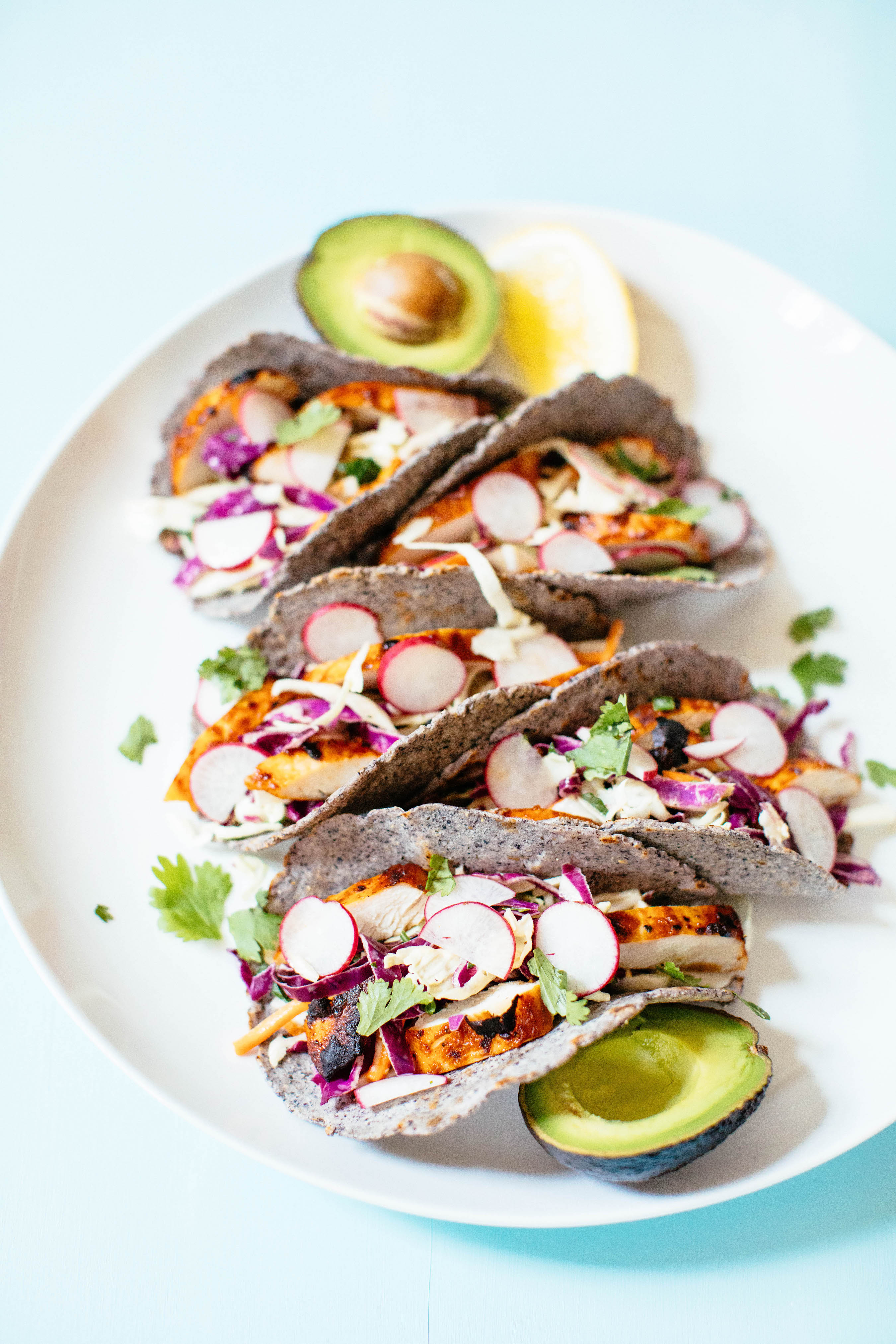Are there certain foods you can’t seem to control yourself around? Keep reading to learn why you feel out of control around food and how you can address the issue today.
It’s not uncommon to feel out of control around certain foods. Maybe it’s a particular category of foods, like sweets and treats during the holidays. Or maybe there’s a certain pasta dish you always seem to overeat without intentionally doing so.
Feeling out of control can be frustrating and overwhelming at times. Here at Nutrition Stripped, we’re no stranger to these feelings. So many of our new clients and members come to us with this exact predicament.
Here we’ll discuss the ins and outs of this loss of control, so you can understand why it may be happening to you.
Control and Food, What’s The Story?
Control and food go hand and hand. Surprising, right? Two subjects that seem to be so unrelated actually tend to become intertwined with one another very often.
Let’s dive a bit deeper into the relationship between the two.
The Diet Cycle and Control
I often see clients who have tried their hand at dieting or detoxing on their own in order to meet a certain health or wellness outcome.
For example, someone who is looking to improve their overall health may want to lose weight. In order to do so, they may sign up for a diet or detox, follow the given rules, and start to see the results they’re looking for.
But eventually, some of the rules become exhausting. For a night, a day, or even one meal, they decide not to follow the rules and eat something that doesn’t align with the diet or detox.
The result? They often feel out of control. As though they’re completely out of bounds and without structure. As though the food item is controlling their actions.
This loss of control often leads to a stronger, more extreme exertion of control. Where they go back to the rules of the diet and the detox and vow to “do better”, “be better” this time around.
So what’s happening here? Why did I just take the time to walk you through this?
In a nutshell, this diet cycle or diet mentality is a cycle of control. The confinements of the diet make you want to rebel. When you rebel, you experience a lack of control. The lack of control leads to an attempt to gain or exert even more control, and the cycle continues.
To clarify, you don’t necessarily have to be on a diet or have tried a specific diet to experience this. Simply creating your own food rules, guidelines or regulations can result in the start of this cycle as well.
Now that we understand the connection between control and food, let’s get a bit more specific.
Why You Feel Out of Control Around Certain Foods
Below are some of the most common diet-based habits and tendencies that cause a loss of control around food.
We’ll walk through each of them so you can identify which ones may be impacting your relationship with food.
Restriction of Intake
The most common habit or tendency is restriction.
When someone is attempting to make healthier choices, they often try to restrict their intake of certain food items. This results in the creation of food rules.
For example, a food rule may sound like, “I can’t have any carbs at dinner”.
Now if you’re an avid Nutrition Stripped follower, you know that we need carbohydrates – they’re the body’s primary source of energy.
Additionally, even without taking this fact into account, is it realistic for us to say that we’re never going to eat carbohydrates at dinner time again? Probably not.
By restricting intake and creating this food rule, we’re setting ourselves up to fail.
Eventually, we have carbs at dinner. And what happens? We lose all control. The body essentially says, “Finally! The nutrition I need and have been asking for!”, and we eat way more than we intended and feel completely out of control around the food.
Lack of Nourishment
Food is fuel for the human body. It nourishes us so we’re able to function at our best, all day, every day.
In order to ensure that we’re getting the nourishment we need, our bodies are equipped with hormones that cue our hunger and our satiety.
When we need more nourishment, we feel hunger. When we’re good to go for the time being, we feel satiety.
Yet oftentimes, as we age and as our lives evolve, we can start to ignore or suppress these cues from our bodies. For example, one may decide to ignore their hunger cues perpetually in an attempt to eat less and lose weight.
This results in a lack of nourishment.
So what happens when we do eat after having suppressed those hunger cues and not eaten for hours on end? Once again, the body essentially rejoices, it’s so excited to finally get the nourishment it has been craving!
So, therefore, you lose all control. Hunger cues shoot through the roof, the concept of portion size goes out the window, and you find yourself eating way more than you initially intended.
A lack of nourishment can cause you to feel out of control around food.
Assigning Morality to Food
Another habit I frequently see is the assigning of morality to food.
This is when we believe nourishing foods to be “good”, while more enjoyable foods that have little to no nutrient value are “bad”.
When we assign this morality to food, we’re inadvertently putting the “bad” foods that we know we really love, up on a pedestal. They seem so much more enticing and so much more amazing than they ever did before!
Why? Simply because we believe they’re “bad” and that we shouldn’t have them.
So, what happens when we have those “bad” foods? Once again, we lose control. The scarcity mindset kicks in, where the brain believes that this may be our only opportunity to have said food item because we know we’re “not supposed to”.
We overeat, overindulge, and are left feeling uncomfortable, overly full, and frustrated.
Not Enough Fat or Protein
Lastly, many people neglect to eat an adequate amount of protein and/or fat.
Protein and fat are the two components of the Foundational Five that are responsible for satiety and fullness. Without them, we’re left feeling hungry and wanting more at the end of our meals and snacks.
Without these food items, blood sugar is able to spike and drop all day long. As a result, when we’re around food, we can start to feel out of control. It can feel like you’re constantly eating, but never feel as though you’re really done.
How to Feel in Control Around All Food
Now we understand how control and food are connected, how the diet cycle perpetuates a control cycle, as well as the most common habits and tendencies that contribute to you feeling out of control around food.
With all this being said, how do we change? How do we prevent the cycle from continuing?
In order to break the diet cycle of control, a balanced relationship with food needs to be developed. One that incorporates mindfulness as well as science. One that allows you to eat food that not only nourishes you but also brings you joy.
This balanced relationship with food is what we teach you how to achieve in our Mindful Nutrition Method.
You can watch our free workshop to learn how to be more balanced with your food choices so you can be free from food and diet obsession, maintain a balanced weight, and cultivate a positive relationship with food and your body.
The post Why You Feel Out of Control Around Certain Foods appeared first on Nutrition Stripped®.

